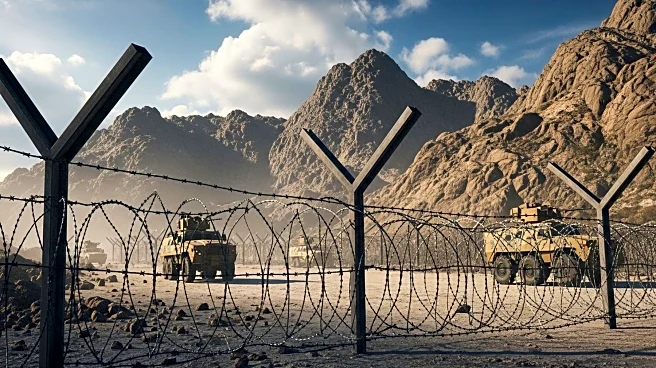What's Happening?
Recent border clashes between Pakistani and Afghan forces have resulted in significant casualties on both sides. The Pakistani military reported that 23 of its soldiers were killed, while the Taliban claimed nine of its fighters were killed. The conflict escalated following Pakistani airstrikes in Kabul, which led to retaliatory attacks by Afghan forces. Both nations have accused each other of harboring militants, with Pakistan demanding action against groups attacking from Afghan territory. The situation remains tense, with intermittent gunfire continuing in some areas.
Why It's Important?
The clashes along the Pakistan-Afghanistan border highlight ongoing regional instability, which could have broader implications for South Asian security dynamics. The conflict risks further straining relations between the two countries, potentially impacting diplomatic efforts and regional cooperation. The involvement of external nations, such as India, adds complexity to the situation, as Pakistan views India's engagement with the Taliban with suspicion. The closure of border crossings could disrupt trade and movement, affecting local economies and communities reliant on cross-border interactions.
What's Next?
The situation may lead to increased diplomatic efforts to de-escalate tensions, with countries like Qatar and Saudi Arabia already expressing concern and calling for restraint. Pakistan and Afghanistan may face international pressure to engage in dialogue and address underlying issues, such as militant activities and border security. The ongoing conflict could prompt further military actions or negotiations, depending on the responses from both governments and international stakeholders.
Beyond the Headlines
The clashes underscore the complex geopolitical landscape in South Asia, where historical grievances and territorial disputes continue to fuel conflict. The involvement of militant groups and accusations of state-sponsored terrorism highlight the challenges in achieving lasting peace. The situation also raises questions about the role of external powers in influencing regional stability and the potential for diplomatic interventions to resolve longstanding issues.









